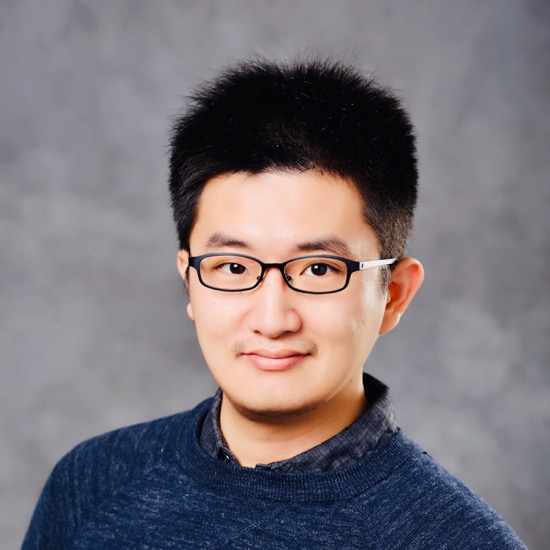INTRO
Recommender systems have become increasingly important in our daily lives since they play an important role in mitigating the information overload problem, especially in many user-oriented online services. Recommender systems aim to identify a set of items that best match users’ explicit or implicit preferences, by utilizing the user and item interactions to improve the accuracy. With the fast advancement of deep neural networks (DNNs) in the past few decades, recommendation techniques have achieved promising performance. However, we still meet three inherent challenges to design deep recommender systems (DRS): 1) the majority of existing DRS are developed based on hand-crafted components, which requires ample expert knowledge recommender systems; 2) human error and bias can lead to suboptimal components, which reduces the recommendation effectiveness; 3) non-trivial time and engineering efforts are usually required to design the task-specific components in different recommendation scenarios.
In this tutorial, we aim to give a comprehensive survey on the recent progress of advanced Automated Machine Learning (AutoML) techniques for solving the above problems in deep recommender systems. More specifically, we will present feature selection, feature embedding search, feature interaction search, and whole DRS pipeline model training and comprehensive search for deep recommender systems. In this way, we expect academic researchers and industrial practitioners in related fields can get deep understanding and accurate insight into the spaces, stimulate more ideas and discussions, and promote developments of technologies in recommendations.
Tutorial Syllabus [Slides]
The topics of this tutorial include (but are not limited to) the following:
- Introduction to Deep Recommender System (DRS)
- Preliminary of Automated Machine Learning (AutoML)
- AutoML for DRS Feature Selection
- AutoML for DRS Embedding Components
- AutoML for DRS Interaction Components
- AutoML for DRS Model Training
- AutoML for DRS Comprehensive Search
- Conclusion and Future Direction
Presenters’ Biography
Dr. Ruiming Tang is a principal researcher in Huawei Noah's Ark Lab since 2014. Before that, he got his PhD from National University of Singapore in 2014 and his BEng from Northeastern University in China in 2009. His research interests include deep learning, reinforcement learning, AutoML, graph learning and their applications in recommendation and search. He has published more than 30 papers in his interested research areas (e.g., IJCAI, AAAI, KDD, SIGIR, NeurIPS, CIKM, ICDM, WSDM, TKDE, TOIS, WWW). Specifically, he has achieved several high-quality publications (e.g., KDD 2020/SIGIR 2020/CIKM 2020/KDD 2021/TKDE) in the research area of this tutorial, namely, AutoML in recommendation. He is program committee members of top data science conferences (e.g., KDD, SIGIR, AAAI, IJCAI, WSDM, CIKM, WWW) and serves as journal reviewers for TKDE, IPM. He also serves as the organizers of DLP@KDD'21.
Mr. Bo Chen is currently a researcher in Huawei Noah’s Ark Lab since 2020. Before that, he got his MS in Software Engineering from Shanghai Jiao Tong University (SJTU) in 2020. His research interests include recommender systems and AutoML. He has published gseveral papers in his interested research areas (e.g., KDD, IJCAI, SIGIR, ICDE, TKDE, CIKM, WSDM). Among which, some publications (e.g., KDD 2021/TKDE 2021/WSDM 2023) belong to the field of this tutorial, i.e., AutoML for recommendation. Besides,he also serves as the tutor in top-tier conferences (e.g.,WWW2022, and RecSys 2022).Mr. Yejing Wang is currently a PhD student in City University of Hong Kong. Before that, he got his B.S. in Statistics from The University of Science and Technology of China (USTC). His research interests include AutoML, feature selection, recommender system. He has published papers on WWW 2022 & 2023 and KDD 2022, and is attending many works related to the topic of this tutorial. He also serves as a tutor in WWW 2022.
Dr. HuiFeng Guo is a senior researcher in Huawei Noah's Ark Lab since 2018. Before that, he got his Ph.D. degree from Harbin Institute of Technology in 2018 and his BEng from Lanzhou University in China in 2012. His research interests include deep learning, AutoML, graph learning, distributed training system and their applications in recommender systems. He has published more than 20 papers in top-tier journals and conferences such as IJCAI, KDD, SIGIR, CIKM, ICDM, WSDM, TKDE, TOIS and WWW.
Dr. Yong Liu is a Senior Principal Researcher at Huawei Noah’s Ark Lab. Prior to joining Huawei, he was a Senior Research Scientist at Nanyang Technological University (NTU), a Data Scientist at NTUC Enterprise, and a Research Scientist at Institute for Infocomm Research (I2R), A*STAR, Singapore. He received his Ph.D.degree from NTU in 2016 and B.S. degree from University of Science and Technology of China (USTC) in 2008. His research interests include recommendation systems, natural language processing, and knowledge graph. He has been invited as a PC member of major conferences such as KDD, SIGIR, ACL, IJCAI, AAAI, and reviewer for IEEE/ACM transactions.
Dr. Wenqi Fan is currently a research assistant professor of the Department of Computing at The Hong Kong Polytechnic University (PolyU). He received his Ph.D. degree from the City University of Hong Kong (CityU) in 2020. From 2018 to 2020, he was a visiting research scholar at Michigan State University. His research interests are in the broad areas of machine learning and data mining, with a particular focus on Recommender Systems, Graph Neural Networks, and Adversarial Attacks. He has published innovative papers in top-tier journals and conferences such as IEEE TKDE, KDD, WWW, ICDE, IJCAI, AAAI, RecSys, WSDM, and SDM. He serves as top-tier conference program committee members (e.g., ICML, ICLR, NeurIPS, KDD, WWW, AAAI, IJCAI, CIKM, etc.), and journal reviewers (e.g., TKDE, TIST, TKDD, TOIS, TAI, etc.). He also serves as the lead tutor of tutorials in top-tier conferences (e.g., WWW 2021, IJCAI 2021, and ICAPS 2021). More information about him can be found at https://wenqifan03.github.io.
Dr. Xiangyu Zhao is an assistant professor of the school of data science at City University of Hong Kong (CityU). Prior to CityU, he completed his PhD (2021) at MSU, MS (2017) at USTC and BEng (2014) at UESTC. His current research interests include data mining and machine learning, especially (1) Information Retrieval and its applications in Personalization, Recommender System, Online Advertising and Search Engine; (2) AutoML, Reinforcement Learning, and Multimodal; (3) Urban Computing and Spatio-Temporal Data Analysis; and (4) AI for Social Computing, Finance, Education, Ecosystem, and Healthcare. He has published more than 20 papers in top conferences (e.g., KDD, WWW, AAAI, SIGIR, ICDE, CIKM, ICDM, WSDM, RecSys) and journals (e.g., SIGKDD, SIGWeb, EPL, APS). His research received Global Top 100 Chinese New Stars in Artificial Intelligence, CCF-Tencent Open Fund, Criteo Research Award, Bytedance Research Award and MSU Dissertation Fellowship. He serves as top data science conference (senior) program committee members and session chairs (e.g., KDD, AAAI, IJCAI, ICML, ICLR, CIKM), and journal reviewers (e.g., TKDE, TKDD, TOIS, CSUR). He serves as the organizers of DRL4KDD@KDD'19, DRL4IR@SIGIR'20, 2nd DRL4KD@WWW'21, 2nd DRL4IR@SIGIR'21. He also serves as the founding academic committee members of MLNLP, the largest AI community in China with 800,000 followers. The models and algorithms from his research have been launched in the online system of many companies, such as Amazon, Google, Facebook, Linkedin, Criteo, Lyft, JD.com, Kuaishou, Tencent, and Bytedance. Please find more information at https://zhaoxyai.github.io/. Dr. Zhao is a lead tutor at WWW'21 and IJCAI'21.






